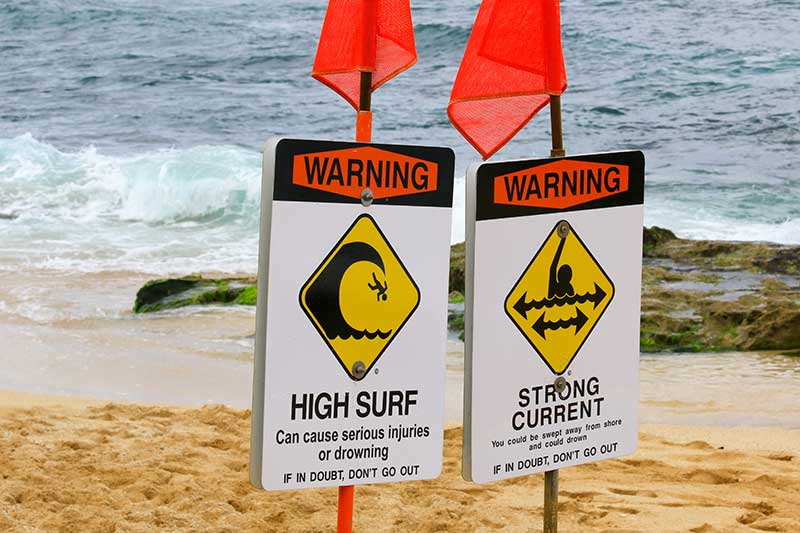
There is nothing quite as satisfying as a good day at the beach. When everyone has their fill of sun, salt water, and sand, laughter and sleep seem to follow easily. The ocean is a force to be respected, and a place where it’s important to always stay aware.
Keep you and your ohana safe.
When you get to the beach or shoreline, be sure everyone watches the ocean for a while. Notice if there are sets coming and how often, and how high the water is rushing up onto the shore. The last thing you want is for all your towels to become a wet, sandy mess!
It can be really fun to play on the rocks, searching for crabs and ‘opihi. But rocks can get slippery when they are wet or covered with some kinds of seaweed. Teach your kids to test the rocks before stepping on them, and when there are wet rocks, make sure the waves are not still washing over them.
Luckily, we have less coastal currents in calm waters than some places, but there can still be strong currents, especially when there is swell in the ocean. Teach your keiki to not swim against the current, but rather sideways out of it’s hold. Also, pay attention if the wind picks up while you are at the beach. If your ohana is in the water on any kind of floatation device, they can easily get swept out if the wind is blowing offshore. It can happen quickly, so stay aware.
If you see little bubbles along the waterline, keep your eyes out for Portuguese Man ‘o war. If someone gets stung, the best treatment, according to new research from UH Manoa is to rinse with vinegar to remove any stings or particles and then soak in hot water or apply a hot pack to the area.
Keep the ocean safe.
While there are many ways to keep you and your ohana safe, it’s also important to keep the ocean clean and safe.
Check your sunscreen. Last year, Hawaii passed a bill that bans sunscreens containing chemicals that cause harm to the delicate coral reefs that are part of the ocean ecosystem. These sunscreens cannot be sold here, so buying sunscreen locally is a good idea. If you have visitors coming, ask them to do the same.
If you still have old sunscreen, look for these chemicals on the label and avoid using them when going in the ocean: oxybenzone (benzophenone-3), octinoxate (octyl methoxycinnamate), 4 methyl benzylidene camphor, methylparaben, butylparaben, phenoxyethanol.
Finally, stock up on reusable containers for packing snacks to help keep our oceans and beaches free of plastic and debris. Consider picking up any microplastics you find on the beach in the area you are sitting. If we all do our part, it can make a big difference.



